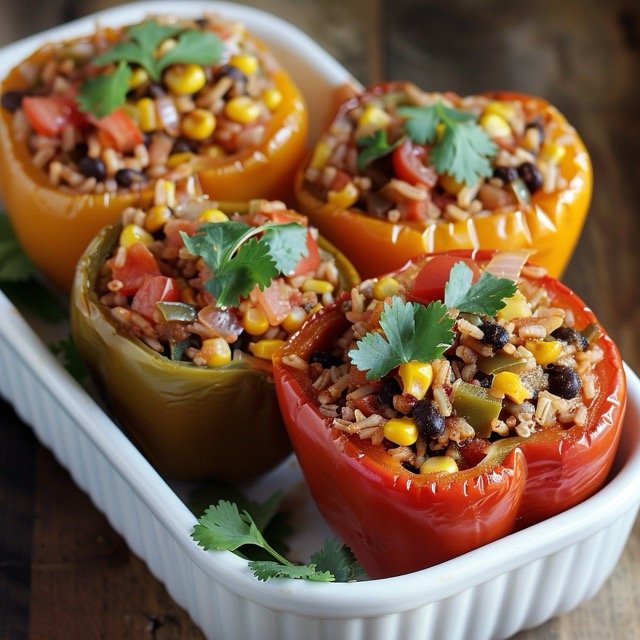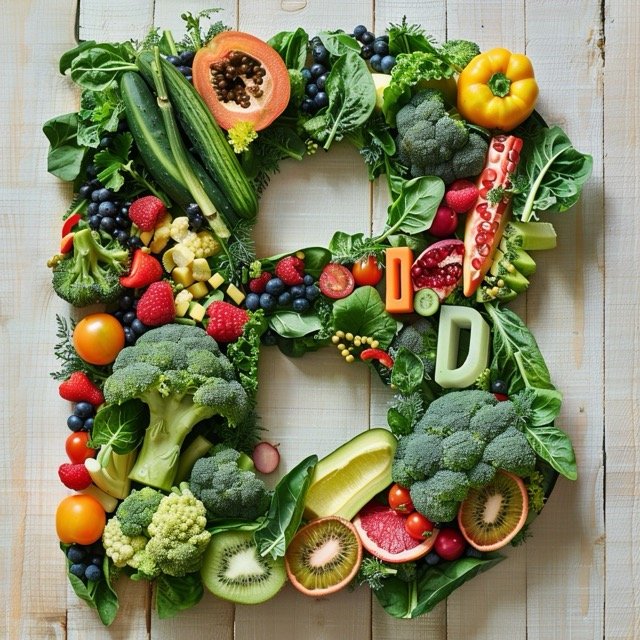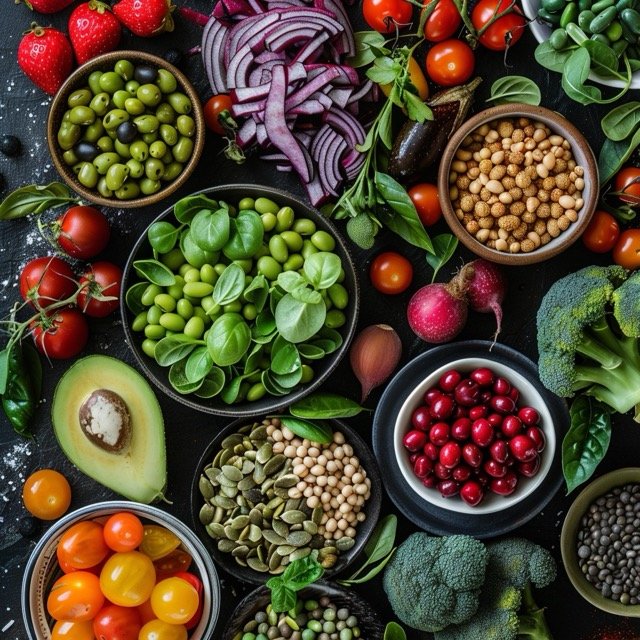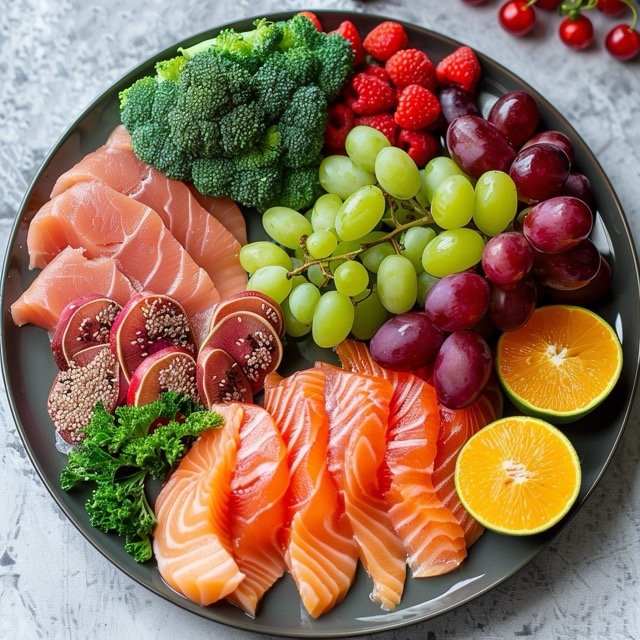Vegetarian Diet: Benefits, Drawbacks, and Practical Tips
The vegetarian diet, which excludes meat and fish but includes plant-based foods, has gained immense popularity over the past few decades. This dietary choice is often motivated by health concerns, environmental considerations, and ethical reasons related to animal welfare.
This comprehensive article will delve into the various aspects of the vegetarian diet, its benefits, and some potential drawbacks. By the end, you will thoroughly understand what adopting a vegetarian lifestyle entails and how it can contribute to a healthier life.
Different Types of Vegetarians
Ovo-vegetarian diet– An ovo-vegetarian diet is a type of vegetarian diet that excludes meat, fish, and poultry but allows the consumption of eggs. This dietary pattern is based on plant foods, including fruits, vegetables, legumes, grains, nuts, and seeds, and also includes eggs as a source of protein and other essential nutrients.
Lacto-vegetarian diet– A lacto-vegetarian diet is a type of vegetarian diet that excludes meat, fish, and poultry but includes dairy products. This dietary pattern is based on plant foods, including fruits, vegetables, legumes, grains, nuts, and seeds, and also incorporates dairy products like milk, cheese, yogurt, and butter. Eggs are not included in a lacto-vegetarian diet.
Lacto Ovo vegetarian diet– A lacto-ovo vegetarian diet is a type of vegetarian diet that excludes meat, fish, and poultry but includes dairy products and eggs. This dietary pattern is based on plant foods, including fruits, vegetables, legumes, grains, nuts, and seeds, and also incorporates dairy products and eggs as sources of protein and other essential nutrients.
What is a vegetarian diet? depends on which one you choose.
Key Points of the Vegetarian Diet
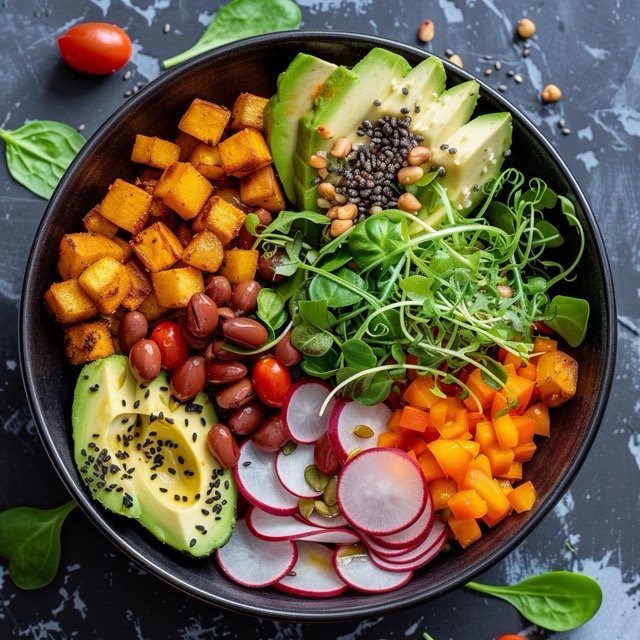
Nutritional Benefits
A well-planned vegetarian diet can provide all the essential nutrients your body needs. Here are some of the primary nutritional benefits:
- Rich in Fiber: Vegetables, fruits, legumes, and whole grains are high in dietary fiber, which aids in digestion and helps maintain a healthy weight.
- Lower in Saturated Fat: Vegetarian diets typically contain lower levels of saturated fats, which can help reduce the risk of heart disease.
- High in Antioxidants: Plant-based foods are rich in antioxidants, such as vitamins C and E, which protect the body against free radicals and reduce the risk of chronic diseases.
- Adequate Protein Intake: Contrary to common belief, vegetarians can obtain sufficient protein from legumes, nuts, seeds, and dairy products.
Health Benefits
Several studies have shown that a vegetarian diet can lead to numerous health benefits:
- Heart Health: Research indicates that vegetarians have a lower risk of heart disease. A study published in the Journal of the American Heart Association found that vegetarian diets are associated with lower blood pressure and cholesterol levels .
- Weight Management: Vegetarians tend to have a lower body mass index (BMI) compared to non-vegetarians. This can be attributed to the high fiber content and lower calorie density of plant-based foods.
- Diabetes Prevention and Management: A vegetarian diet can improve blood sugar control and reduce the risk of developing type 2 diabetes. According to a study in Diabetes Care, vegetarians had a 50% lower risk of developing diabetes compared to non-vegetarians .
- Cancer Risk Reduction: Consuming a variety of fruits and vegetables can reduce the risk of certain types of cancer. The American Institute for Cancer Research highlights that a plant-based diet can lower the risk of colorectal cancer and other gastrointestinal cancers .
What Foods can you eat on a Vegetarian Diet?
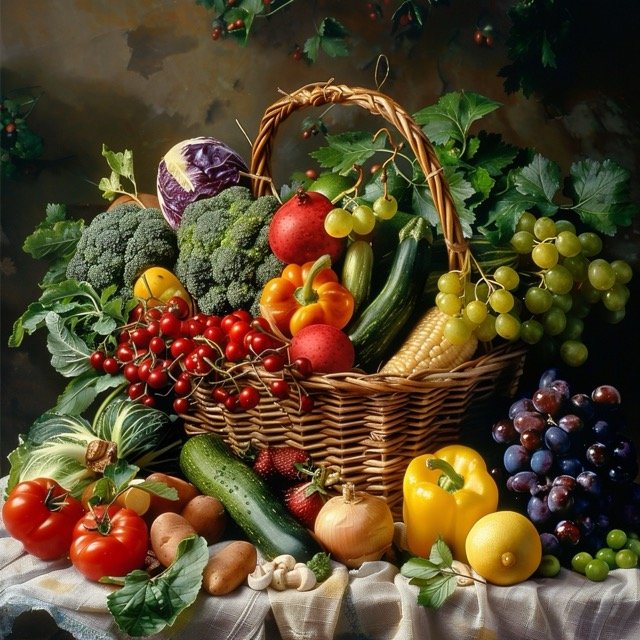
On a vegetarian diet, you can eat a variety of plant-based foods including fruits, vegetables, grains, legumes, nuts, seeds, and dairy products (for lacto-ovo-vegetarians). Here are some examples of foods you can eat on a vegetarian diet:
Fruits:
- Apples
- Bananas
- Berries
- Oranges
- Melons
- Pears
- Peaches
Vegetables:
- Leafy greens (broccoli, spinach, kale)
- Cruciferous vegetables (asparagus, cauliflower, cabbage)
- Root vegetables (carrots, potatoes, sweet potatoes)
- Allium vegetables (onions, garlic, shallots)
- Mushrooms
Grains:
- Whole wheat bread
- Brown rice
- Quinoa
- Oats
- Barley
- Buckwheat
Legumes:
- Lentils
- Chickpeas
- Black beans (Eden Organic Black Beans)
- Kidney beans
- Soybeans
- Peas
Nuts and Seeds:
- Almonds
- Walnuts
- Chia seeds
- Flaxseeds
- Sunflower seeds
- Pumpkin seeds
Dairy Products (for lacto-ovo-vegetarians):
- Milk
- Cheese
- Yogurt
- Eggs
Protein Sources:
- Tofu
- Tempeh
- Seitan
- Natto
- Nutritional yeast
- Spirulina
Healthy Fats:
- Olive oil
- Avocado
- Nuts and seeds (listed above)
Herbs and Spices:
- Turmeric
- Ginger
- Coriander
- Cumin
- Basil
- Oregano
Meat Alternatives:
- Veggie burgers
- Veggie sausages
- Tofu-based meat alternatives
- Seitan-based meat alternatives
- Plant-based meat
Remember to eat a balanced diet with a variety of foods to ensure you get all the necessary nutrients. Consult with a healthcare professional or registered dietitian for personalized guidance on a vegetarian diet(https://medlineplus.gov/vegetariandiet.html).
2-Day Sample Vegetarian Diet Meal Plan

This 2-day meal plan includes dairy products, plant-based meat alternatives, eggs, and other animal-derived products. It is designed to provide balanced nutrition, variety, and delicious meals.
Day 1
Breakfast
- Vegetable Omelette
- 2 eggs
- 1/4 cup diced bell peppers
- 1/4 cup chopped spinach
- 1/4 cup diced tomatoes
- 1/4 cup shredded cheese
- Salt and pepper to taste
- 1 slice whole-grain toast
- 1 glass of orange juice
Snack
- Greek Yogurt with Honey and Nuts
- 1 cup Greek yogurt
- 1 tablespoon honey
- 2 tablespoons mixed nuts (almonds, walnuts, pistachios)
Lunch
- Grilled Cheese and Tomato Soup
- 2 slices whole-grain bread
- 2 slices cheddar cheese
- 1 tablespoon butter
- 1 bowl tomato soup (homemade or low-sodium store-bought)
- Side salad with mixed greens, cucumbers, and a vinaigrette dressing
Snack
- Apple Slices with Peanut Butter
- 1 medium apple, sliced
- 2 tablespoons natural peanut butter (Smucker’s Organic Natural Creamy Peanut Butter)
Dinner
- Stir-Fried Tofu with Vegetables and Brown Rice
- 1 cup firm tofu, cubed
- 1 cup mixed vegetables (broccoli, carrots, bell peppers)
- 2 tablespoons soy sauce
- 1 tablespoon olive oil
- 1 cup cooked brown rice
- 1/2 teaspoon ginger and garlic each
- Sesame seeds for garnish
Day 2
Breakfast
- Berry Smoothie Bowl
- 1 cup almond milk
- 1/2 cup frozen mixed berries
- 1 banana
- 1 tablespoon chia seeds
- 1/4 cup granola
- Fresh berries for topping
Snack
- Cheese and Crackers
- 1 ounce of cheddar cheese (365 By Wholefoods Organic Sharp Cheddar Cheese)
- 5-6 crackers (Patagonia Provisions Organic Sourdough Sea Salt Crackers)
Lunch
- Vegetarian Wrap
- 1 whole-wheat tortilla
- 1/2 cup hummus
- 1/4 cup shredded carrots
- 1/4 cup cucumber slices
- 1/4 cup bell pepper slices
- 1/4 avocado, sliced
- Spinach leaves
- Side of baby carrots and cherry tomatoes
Snack
- Hard-Boiled Eggs and Veggies
- 2 hard-boiled eggs
- 1 cup of sliced cucumbers and bell peppers
Dinner
- Vegetarian Lasagna
- 1 box lasagna noodles (whole wheat preferred)
- 2 cups ricotta cheese
- 1 cup shredded mozzarella cheese
- 1/2 cup grated Parmesan cheese
- 2 cups marinara sauce
- 1 cup spinach, chopped
- 1/2 cup mushrooms, sliced
- 1 zucchini, thinly sliced
- 1 egg (to mix with ricotta)
- Fresh basil for garnish
Environmental and Ethical Considerations
One of the compelling reasons many choose a vegetarian diet is its positive impact on the environment. Producing plant-based foods generally requires fewer resources and results in lower greenhouse gas emissions compared to meat production. Additionally, a vegetarian diet reduces the demand for animal farming, which often involves practices that are harmful to animal welfare.
Potential Drawbacks and Challenges
While the vegetarian diet has numerous benefits, it’s essential to be aware of potential drawbacks and how to address them:
- Nutrient Deficiencies: Vegetarians may be at risk of certain nutrient deficiencies, including vitamin B12, iron, calcium, and omega-3 fatty acids. These nutrients are primarily found in animal products, so vegetarians need to find alternative sources or consider supplements.
- Vitamin B12: Found in fortified foods like plant-based milk and cereals, or taken as a supplement.
- Iron: Plant-based iron sources include lentils, chickpeas, and spinach. Consuming vitamin C-rich foods alongside iron-rich foods can enhance absorption.
- Calcium: Obtainable from fortified plant-based milk, leafy greens, and tofu.
- Omega-3 Fatty Acids: Can be sourced from flaxseeds, chia seeds, and walnuts.
- Social and Cultural Challenges: Adopting a vegetarian diet can sometimes be challenging in social situations or cultures where meat is a dietary staple. It’s helpful to communicate your dietary preferences to friends and family and explore vegetarian-friendly options when dining out.
- Processed Vegetarian Foods: While plant-based diets are generally healthy, it’s essential to be cautious of highly processed vegetarian foods, which can be high in sodium, unhealthy fats, and artificial ingredients. Focusing on whole, minimally processed foods is key to maintaining a healthy diet.
Relevant Scientific Data and Case Studies
Numerous studies support the health benefits of a vegetarian diet. For instance, the Adventist Health Study-2, which examined dietary patterns among Seventh-day Adventists, found that vegetarians had a significantly lower risk of developing chronic diseases compared to non-vegetarians .
Another study published in The Lancet analyzed the environmental impact of different diets and concluded that widespread adoption of vegetarian diets could significantly reduce global greenhouse gas emissions and improve public health outcomes.
Conclusion
The vegetarian diet offers numerous health benefits, including improved heart health, better weight management, and reduced risk of chronic diseases. By focusing on a variety of nutrient-rich, plant-based foods, vegetarians can meet all their nutritional needs. However, it’s essential to be mindful of potential nutrient deficiencies and address them through careful dietary planning or supplementation.
For those considering a switch to a vegetarian diet, it’s recommended to start gradually, experiment with different plant-based foods, and consult with a healthcare provider or a registered dietitian to ensure a balanced and nutritious diet.
Further Reading and Action Items
- Explore Vegetarian Recipes: Websites like Vegetarian Times and Minimalist Baker offer a wide range of vegetarian recipes to suit all tastes.
- Join Vegetarian Communities: Online forums and local groups can provide support and inspiration for maintaining a vegetarian lifestyle.
- Consult a Dietitian: For personalized advice and meal planning, consider consulting a registered dietitian who specializes in vegetarian nutrition.
By embracing a vegetarian diet, you can contribute to better health for yourself and the planet. Whether you’re motivated by health, environmental, or ethical reasons, the benefits of this dietary choice are substantial and far-reaching. You’ll find more about the vegetarian diet here at FittBeat subscribe or visit whenever you can!
References
Yokoyama, Y., Nishimura, K., Barnard, N. D., Takegami, M., Watanabe, M., Sekikawa, A., Okamura, T., & Miyamoto, Y. (2014). Vegetarian diets and blood pressure: a meta-analysis. JAMA internal medicine, 174(4), 577–587. https://doi.org/10.1001/jamainternmed.2013.14547, https://pubmed.ncbi.nlm.nih.gov/24566947/
Olfert, M. D., & Wattick, R. A. (2018). Vegetarian Diets and the Risk of Diabetes. Current diabetes reports, 18(11), 101. https://doi.org/10.1007/s11892-018-1070-9, https://www.ncbi.nlm.nih.gov/pmc/articles/PMC6153574/
Lanou, A. J., & Svenson, B. (2010). Reduced cancer risk in vegetarians: an analysis of recent reports. Cancer management and research, 3, 1–8. https://doi.org/10.2147/CMR.S6910, https://www.ncbi.nlm.nih.gov/pmc/articles/PMC3048091/#:~:text=Most%20large%20prospective%20observational%20studies,conducted%20to%20address%20this%20relationship.
Anand, P., Kunnumakkara, A. B., Sundaram, C., Harikumar, K. B., Tharakan, S. T., Lai, O. S., Sung, B., & Aggarwal, B. B. (2008). Cancer is a preventable disease that requires major lifestyle changes. Pharmaceutical research, 25(9), 2097–2116. https://doi.org/10.1007/s11095-008-9661-9, https://pubmed.ncbi.nlm.nih.gov/18626751/
Doll, R., & Peto, R. (1981). The causes of cancer: quantitative estimates of avoidable risks of cancer in the United States today. Journal of the National Cancer Institute, 66(6), 1191–1308. https://pubmed.ncbi.nlm.nih.gov/7017215/
Willett W. C. (2000). Diet and cancer. The oncologist, 5(5), 393–404. https://doi.org/10.1634/theoncologist.5-5-393, https://pubmed.ncbi.nlm.nih.gov/11040276/
Béliveau, R., & Gingras, D. (2007). Role of nutrition in preventing cancer. Canadian family physician Medecin de famille canadien, 53(11), 1905–1911. https://pubmed.ncbi.nlm.nih.gov/18000267/
Gescher, A., Pastorino, U., Plummer, S. M., & Manson, M. M. (1998). Suppression of tumour development by substances derived from the diet–mechanisms and clinical implications. British journal of clinical pharmacology, 45(1), 1–12. https://doi.org/10.1046/j.1365-2125.1998.00640.x, https://pubmed.ncbi.nlm.nih.gov/9489587/


